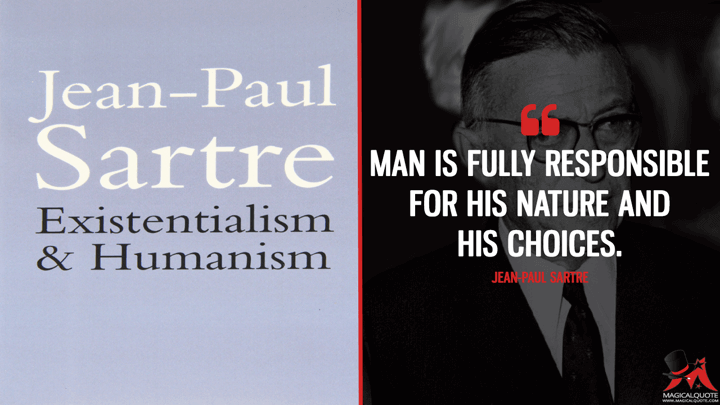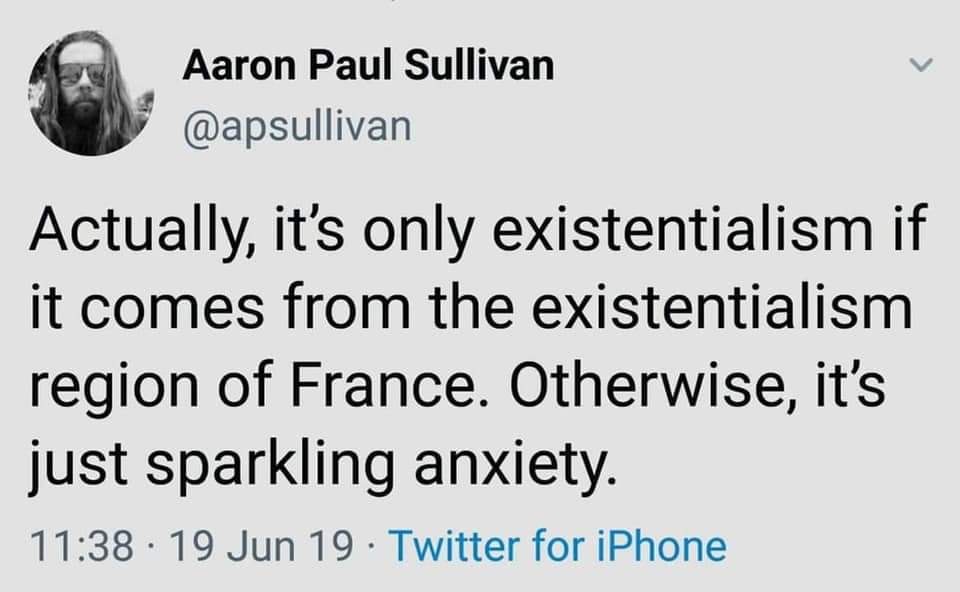Freedom and Sustainability

Summing it up: “Existence precedes essence,” i.e., there is no essence of a human being that comes before our existence. We are, we find ourselves living in the world, and only then can we define ourselves. Moreover, we are “condemned to be free,” as Sartre puts it, meaning that we are the totality of the decisions we make. We can choose to be Christians or atheists, but it is we who have made that choice.
The relevance to environmental sustainability is clear. We are not bound to go along with the business-as-usual approach to life that our society demands. We are at liberty to be ourselves, to think and act independently of the social programming with which we are constantly bombarded. Our proclivity towards robo-consumerism is an option, but it’s one we can choose not to accept for ourselves. We are free to pusue lives centered around the care of the planet and our fellows who live on its surface.
On a lighter note:

